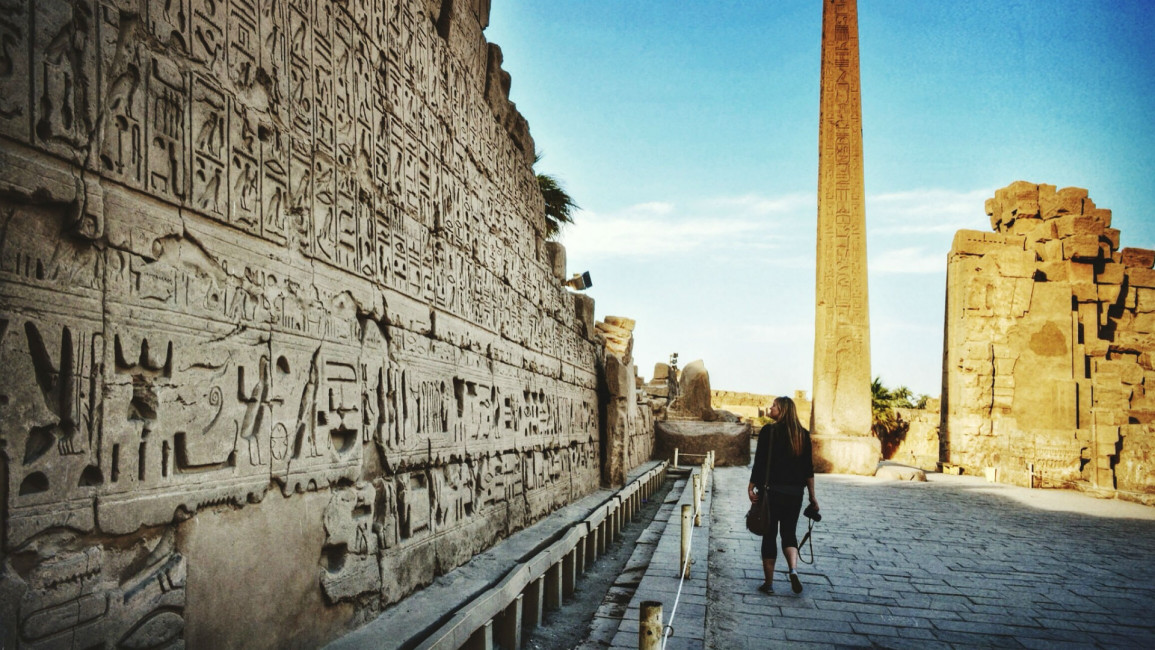Follow us on Twitter and Instagram to stay connected
British boys left 'scarred for life' after having black henna tattoos during Egypt trip
Kent-based twin boys Bradley and Joshua Hawkins went on a family holiday to Egypt when they both had temporary henna tattoos applied on their arms.
According to their mother, neither experienced problems immeditately after the procedure, which involves applying black henna paste applied to the skin to stain it with patterns.
When they reached the Egyptian airport to return to the UK both children complained of burning sensations in the areas the black henna was applied.
"You'd look at it one minute and 10 minutes later you'd see the blisters had grown, it was getting redder, it was hot, it was like a burn," their mother Vicki Hawkins told the BBC, urging she had no idea about the dangers of black henna.
One of the children, Bradley, described his ordeal: "We went on a plane, it was a five hour flight and when we got back they had big blisters on my arm and it was awful."
Both Bradley and his brother had to endure excruciating treatment to remove the blisters and have been left with life-long scars.
|
||
Henna artists have for years tried to educate the public on the dangers of black henna, including in Europe where it is illegal.
"Everyone knows a friend, or an aunt - or that one person who got a black henna tattoo and came back scarred. These horror stories are common in almost every household - many of these stories common amongst little children," Azreen Somra, henna artist and founder of all-natural henna company Azreens Collection told The New Arab.
She was inspired to start her business after being diagnosed with cancer and wanted to find safe alternatives for skincare and cosmetics.
"Black henna contains a toxic chemical called P-phenylenediamine (PPD) which is known to be a sensitiser - a sensetiser is any chemical which causes an allergic reaction upon absorption. Hence the large blisters, burning and scarring we see in the typical black henna horror pictures," she added.
Despite henna artists advising against applying black henna and promoting natural alternatives, the dangers of black henna remain unknown to many outside of the henna community.
The twins' parents both said they regret the decision to allow their children have the temporary tattoos applied, but insist they knew nothing about the dangers of black henna.
"Both me and their dad have beaten up ourselves about it tremendously," Vicki said.
"I knew nothing about the dangers of black henna. It's not my fault, I didn't put it on them, but I allowed them to have it done and I wish I was aware."
Somra instead urges the use of jagua, a natural and safe alternative to black henna that produces the same black stain on the skin but is not thought to have any adverse side effects.
"There are henna artists that have done many years of research into cultivating a henna recipe that allows for gorgeous dark stains and have now begun incorporating 100 percent jagua, or blends of jagua and henna for a range of different henna colours to suit different skin tones," she said.
Egypt is a popular holiday destination for British tourists, but the North African country's tourism industry has been suffered from the deteriorating security situation in the country.

![Widespread famine is imminent in Gaza [Getty Images]](/sites/default/files/styles/image_330x185/public/2024-03/GettyImages-2015647000.jpg?h=199d8c1f&itok=mJWWP_Td)

